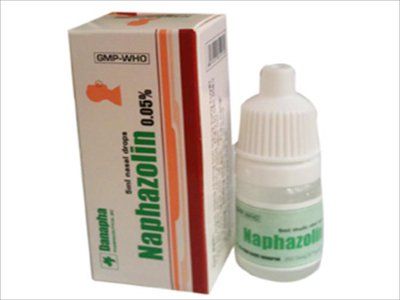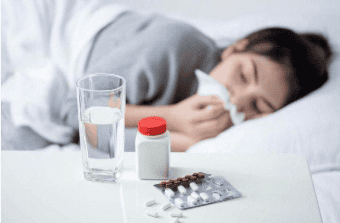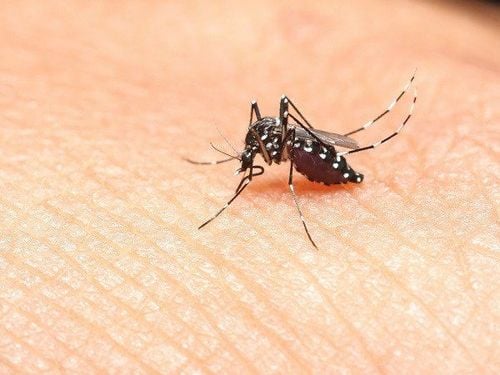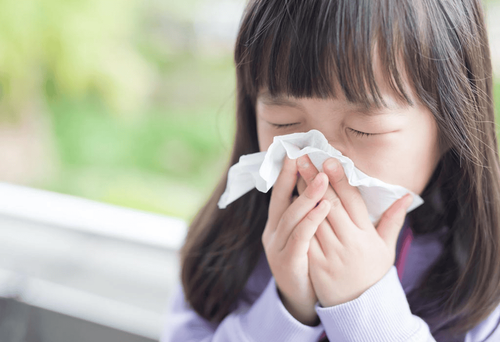This is an automatically translated article.
A cold is an infection of the upper respiratory tract (nose and throat) caused by a virus. When you have a cold, you can treat symptoms by taking pain relievers and fever reducers.1. Colds
A cold is a viral infection that causes infections in the nose and throat (upper respiratory tract). It is also known as acute nasopharyngitis and acute rhinorrhea. It is a common infectious disease in humans and is mainly caused by a virus. Colds can be spread through the air from coughing, sneezing, or touching infected surfaces.2. What medicine do you take when you have a cold?
Antibiotics do not work against cold viruses and should not be used unless there is a bacterial infection. Therefore, cold treatment should be directed at reducing the signs and symptoms of the illness. Medicines used for treatment include:Pain relievers: When there are symptoms of fever, sore throat and headache, use acetaminophen (paracetamol) or other pain relievers to reduce fever and relieve pain. Using acetaminophen for a short time and exactly as directed will avoid side effects from the drug. Avoid giving aspirin to children because it has been linked to Reye's syndrome, which is potentially life-threatening. Nasal decongestant spray: to clean the nose and throat, children and adults can use a nasal spray containing saline. In addition, nasal sprays/drops containing vasoconstrictors such as naphazolin, xylometazolin can be used to reduce symptoms of nasal congestion and runny nose. However, young children need to be examined and prescribed by a doctor before using nasal vasoconstrictors. Cough syrup: People can drink syrup to relieve cough, sore throat. However, should not be abused for a long time, in case the cough and sore throat does not improve, you should have a medical examination for proper diagnosis and treatment.
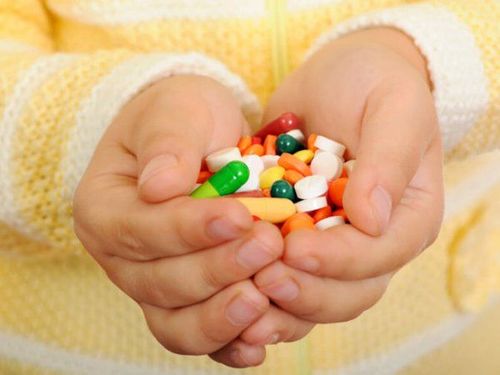
Thực tế thuốc kháng sinh không có tác dụng chống lại virus cảm lạnh như mọi người lầm tưởng
3. Some problems encountered when using antibiotics
When a cold does not have an infection, taking antibiotics not only does not work, but also causes side effects.Common side effects such as dizziness, nausea or vomiting, yeast infection or possibly diarrhea. Side effects that cause serious but rare problems can be allergic reactions, trouble breathing, damage to the colon.
Use antibiotics unnecessarily and over time they will become less effective on subsequent treatments. Because bacteria are exposed to a lot of antibiotics they can mutate to continue to survive and become resistant to antibiotics (antibiotic resistance),
4. When do antibiotics work for colds?
Antibiotics used correctly can be highly effective as in the treatment of bronchitis, pneumonia, sore throat, ear infections and pink eye - caused by disease-causing bacteria.After having a cold, there may be an infection. Some signs of an infection are pain around the face and eyes, coughing up thick, yellow or green mucus. But, these are also the symptoms you can see when you have a cold. If these symptoms persist or the condition is getting worse every day, it is possible that the body has a bacterial infection and now needs to use antibiotics to combine treatment.
Do not arbitrarily or abuse using antibiotics without a doctor's examination and prescription. During antibiotic treatment, remember:
See your doctor if you feel that your illness is getting worse: The doctor will examine and check if the disease is caused by bacteria or virus and will prescribe antibiotics if necessary necessary for treatment. Follow your doctor's instructions carefully: Take all the medications your doctor recommends and stick to the schedule. If medication remains at the end of treatment, it should not be kept and should not be used for another course of treatment. Do not share drugs: Never give your own antibiotics to others, and do not use other people's antibiotics. Because they are not the same at all. If antibiotics are necessary, the doctor will prescribe the appropriate drugs for treatment. Using antibiotics unnecessarily will make bacteria stronger and more resistant to available drugs. That leaves us vulnerable to untreatable infections. Treating a cold is not complicated, but if you feel the need to use antibiotics, you need to see a doctor and prescribe it.
Vinmec International General Hospital is one of the hospitals that not only ensures professional quality with a team of leading medical doctors, modern equipment and technology, but also stands out for its examination and consultation services. comprehensive and professional medical consultation and treatment; civilized, polite, safe and sterile medical examination and treatment space. Customers can directly visit the Department of Medical Examination & Internal Medicine or book an appointment HERE for medical examination and treatment.
MORE:
What should parents do when a child has a cold and vomits a lot? 10 signs that distinguish the flu from a cold Cold, flu: In which case you need to see a doctor?





